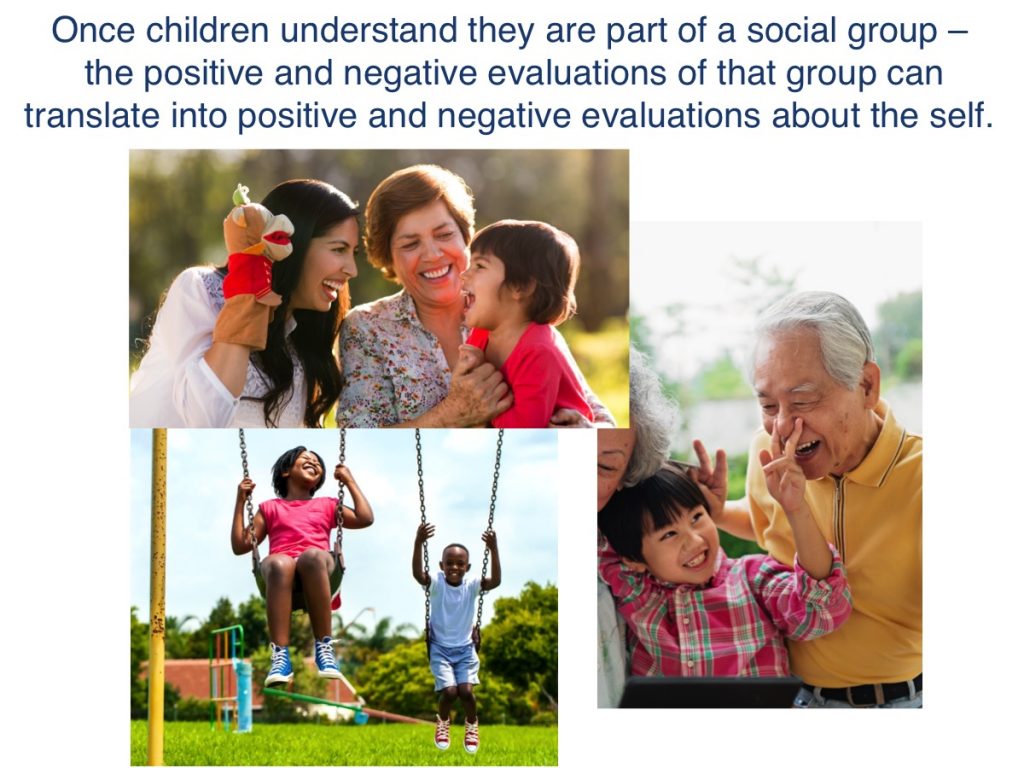
This social understanding of race is also connected to a child’s developing social identity. Social identity is not only a sense of “me-ness” but also a sense of “we-ness.” In other words, instead of focusing on the self as an individual, children also think of “me” as part of a larger group of “we.” And they begin to process what this means for them and for the group. “We” as Asians or Blacks or Latinos. These group identities are important because children draw a sense of self-worth from their groups. Evaluations of their group can translate into positive and negative evaluations about the self.
To summarize, we know that children are aware of race from a young age and view themselves and others in racial terms. Children use race in social situations to make judgments about others, like who will get an “A” on a test. These judgments guide their own choices, such as who they would like to play with. And children understand the racial “we” and are developing a racial identity.
But their beliefs, attitudes, and experience are still growing and malleable. Children use the information provided by those around them to fill in the blanks. This is where educators, parents and peers come in to play. In Module 14 we explore ways that parents and educators can engage with children about race. We’ll also explore how they can discuss the child’s developing understanding of race. And we’ll continue talking about the impacts of racism in our society.
-
- Bias
- the belief that some people or ideas are better than others, usually resulting in unfair treatment
- Biological race
- physical racial features such as skin color, hair textures, and facial features
- Explicit racism/bias
- racism that is plainly expressed through words and or actions
- Implicit racism/bias
- racism that hides in our unconscious biases and gets expressed in our actions
- Racism
- the beliefs and practices that uphold and reinforce inequalities based on race
- Social identity
- a person’s sense of self that is based on group membership
- Social race
- The social norms, attitudes, beliefs and behaviors that accompany racial groups
- Systemic racism
- policies, practices, and laws that reinforce social inequalities by discriminating against groups of people, either directly or indirectly, and limiting their rights